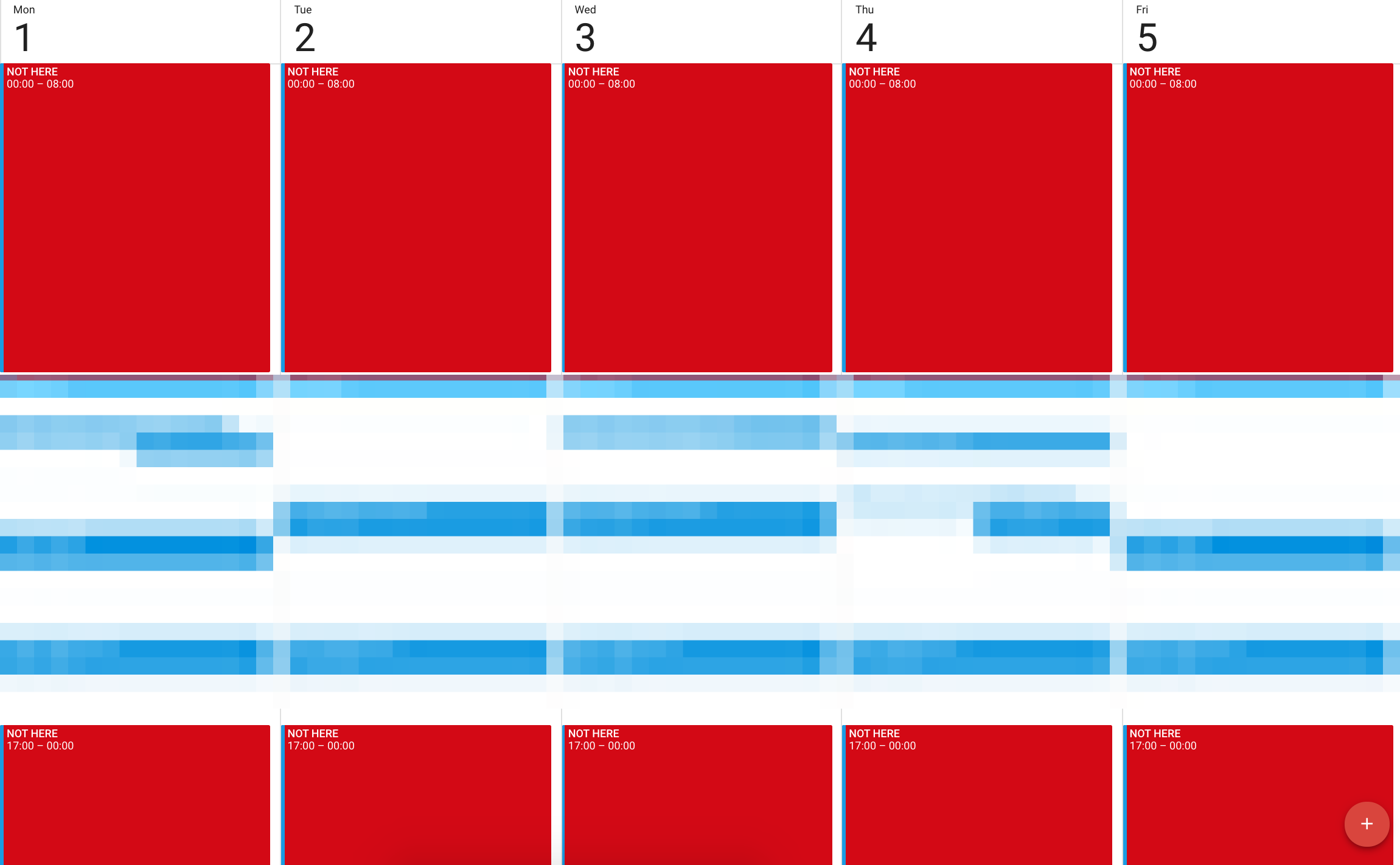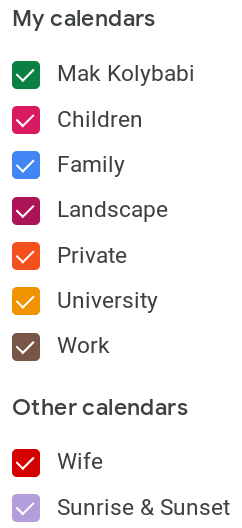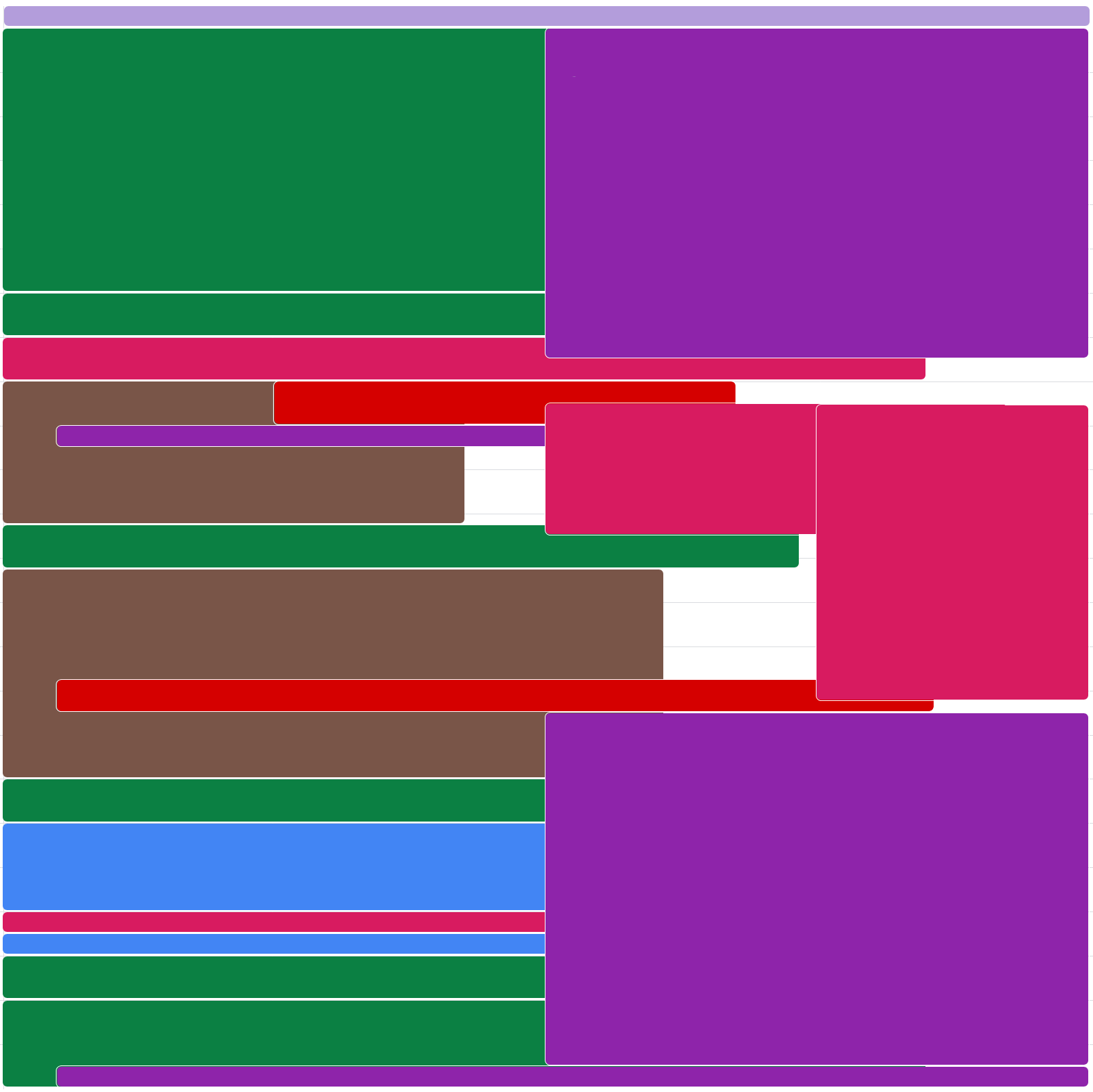Calendaring
I’m always worried when I make plans with someone that I know doesn’t have a calendar. I didn’t maintain a calendar until I had been married for a few months, but life tends to get complicated over time. Paper calendars and writing notes work up to a point, but when you need to take someone else’s schedule into account, networked electronic calendars become very useful. So let’s talk about some things that I like to do with calendars, especially the things that friends have told me are weird.
For my work, being a remote employee in a timezone separate from most of my coworkers, calendars are important for my meetings. My bosses have frequently scheduled meetings with me that are far too late or far too early for my timezone. While this isn’t entirely preventable, there are two things that can help reduce off-hours invitations. First, use the subtle availability restriction settings present on both Google Calendar and Outlook 365. They allow you to set your working hours, so that anyone inviting you to an event outside of those hours will receive a warning that they must clear before the invitation is sent. Second, use the far, far less subtle method of having giant recurring events, preferably marked in red that span your entire off-hours. These events will prevent things that ignore your availability restrictions but respect free/busy status from scheduling events during these times. Those giant red spans also send a clear message, which I appreciate.

My personal calendar is far more important to me, and much more heavily used. Before we go in-depth, here’s what it looks like in Google Calendar. Some editing has been done to the image to make it more general.

The Landscape calendar draws a lot of comments, so let’s address that first. I got this idea by misunderstanding someone else’s, but I like my version better, and it’s that the ‘landscape’ is made up of events around me that aren’t necessarily part of my life, but that I still want to be mindful of. Examples are best, in this case, so here’s a list of recurring events in my Landscape calendar:
- Birthdays of friends (not family), in the format
Name (Born: YYYY). - Anniversaries of friends (not family), in the format
Name & Name (Married: YYYY). - Shift rotations for my best friend, mother, and father — all nurses — which are a complicated series of events that repeat over a period of several weeks.
- Dates when friends and acquiantances will be in town.
- Dates when the Winnipeg overnight parking ban starts and ends.
- Dates when local festivals occur (e.g., Fringe festival).
- Amateur radio nets occurring.
My Private calendar contains events that no other person ever needs to know about. If I need to call someone, email something, or stop eating because I’m going for bloodwork 12 hours later, it will be on this calendar. Private events are characterized by taking little to no time.
My Personal calendar, represented by my name, is my main scheduling tool for uncategorizable things that need to do, personally. The most important thing on here is the Sleep event. Scheduling my sleep is important, because it’s the largest block of time in my routine, and having it visible means that when I look at my calendar the event will dominate the end of the day. This is important to me because, in the absence of triggers to do otherwise, I tend to stay up late on my computer long after others have gone to bed. Having a sleep event in your calendar also lets me configure a notification in advance of the event, giving me a ten-minute warning that initiates my “stop what you’re doing and get ready for bed” checklist. Yes, a checklist. More on that another day…
The Family (events that the whole family “does”) and Children (events that the children “do”) calendars are what you’d expect, as is the (currently sparse) University calendar. One of the benefits of having these calendars separated is that they become easy to disable, allowing me to view and search for events outside of them. I can also individually share these calendars with my wife, and provide her write access. The Children calendar is also shared with my extended family.
My Work calendar contains recurring events that are useful for my wife to be aware of, since I telecommute from our house. For instance, I have events that state Meeting (Muted) and Meeting (Talking) so that my wife knows, for example, whether one of the kids playing Lego in my office is okay if she needs to do something without them (e.g., go for an prenatal ultrasound).
Finally, the Sunset & Sunrise calendar is just what it says on the tin. Past Mak never understood the usefulness of this, but having kids changed that. Knowing when the sun sets is useful in my calendar because it helps me decide whether it’s worthwhile to go to the park given the time, etc.
Always keep in mind that your calendar doesn’t rule your life, because life is never simple. But a calendar, properly used, provides perspective on what you should be doing. So if you get a notification that you should get ready to sleep, and you ignore it, it has still done its job. I sometimes think of my calendar as an opportunity cost tracker. Here’s what an average day in my life looks like, if you’re curious.
